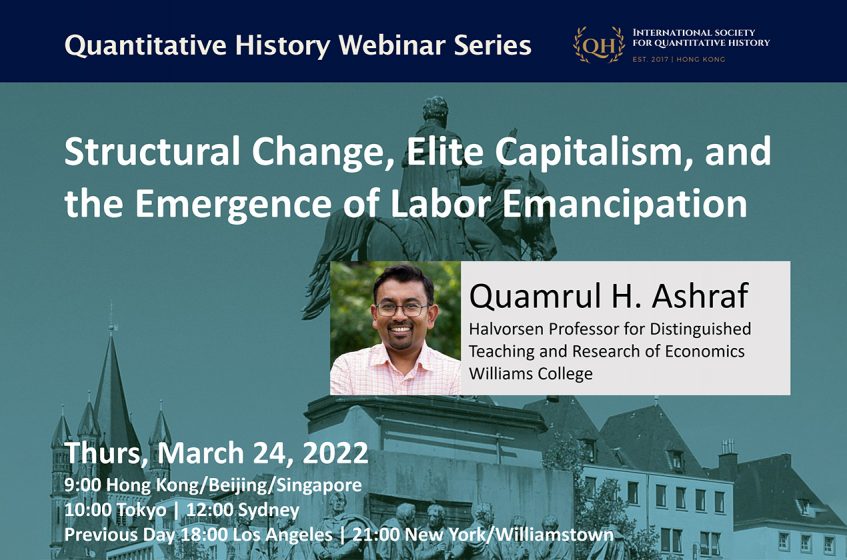
Structural Change, Elite Capitalism, and the Emergence of Labor Emancipation
Structural Change, Elite Capitalism, and the Emergence of Labor Emancipation
Quamrul Ashraf, of Williams College, and his co-authors study a novel mechanism for the emergence of labor emancipation – one in which the material incentives of elites in society play an instrumental role. They propose that the decline of coercive labor institutions in the course of industrialization has partly been driven by complementarity between physical capital and free workers in the production process. In light of the costly enforcement of labor effort in non-manual industrial tasks, as well as the nascent significance of skills for the returns to physical capital, the capitalist elites relinquished their previously profitable coercion of labor out of self-interest. By reducing wage expropriation, they incentivized workers to increase effective labor and potentially also acquire skills, thus fostering the short- and long-run returns to physical capital for the elites.
In this Quantitative History Webinar, Quamrul Ashraf will explain the evidence they uncover in line with this hypothesis: based on plausibly exogenous variation in proto-industrialization across regions of nineteenth-century Prussia, the initial abundance of elite-owned physical capital contributed to (i) the subsequent intensity of serf emancipation, (ii) the elites’ willingness to accept emancipation at lower redemption payments, and (iii) the employment of skilled workers in manufacturing, amongst other outcomes related to general human capital.
Quamrul’s co-authors: Francesco Cinnirella (University of Bergamo), Oded Galor (Brown University), Boris Gershman (American University), and Erik Hornung (University of Cologne)
Live on Zoom on March 24, 2022
9:00 Hong Kong/Beijing/Singapore
10:00 Tokyo | 12:00 Sydney
Previous Day 18:00 Los Angeles | 21:00 New York/Williamstown
Calculate your local time
The Quantitative History Webinar Series, convened by Professor Zhiwu Chen and Dr. Chicheng Ma of The University of Hong Kong (HKU), aims to provide researchers, teachers and students with an online intellectual platform to keep up to date with the latest research in the field, promoting the dissemination of research findings and interdisciplinary use of quantitative methods in historical research. The Series is co-organized by the International Society for Quantitative History, HKU Business School, and the Asia Global Institute (AGI).
Conveners:
Professor Zhiwu Chen
Dr. Chicheng Ma







